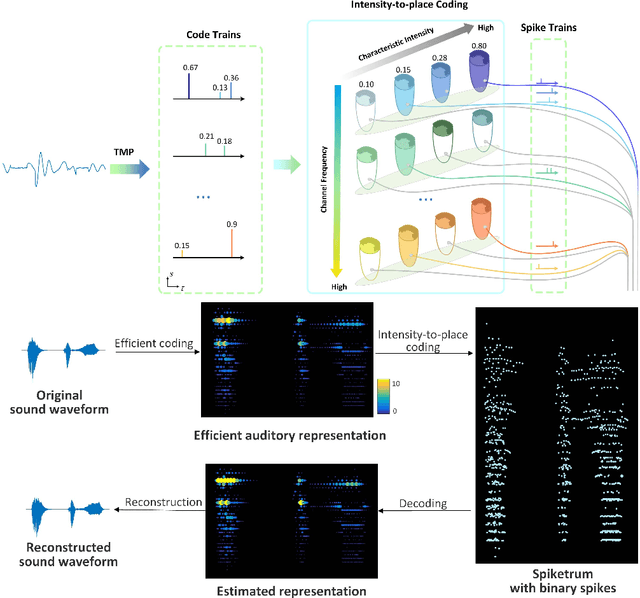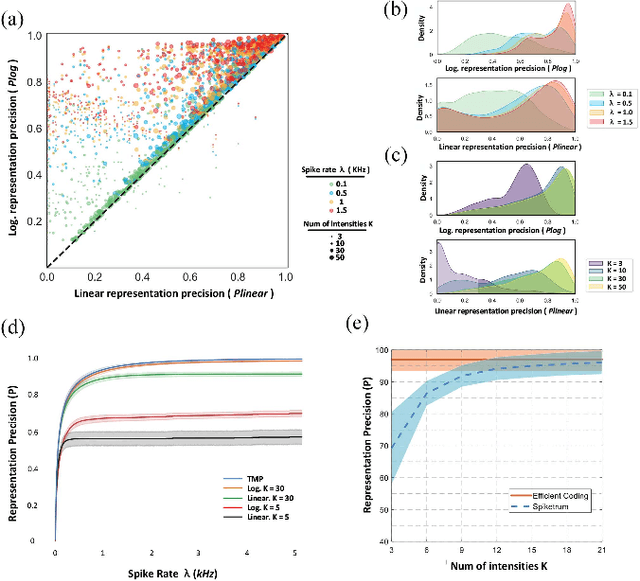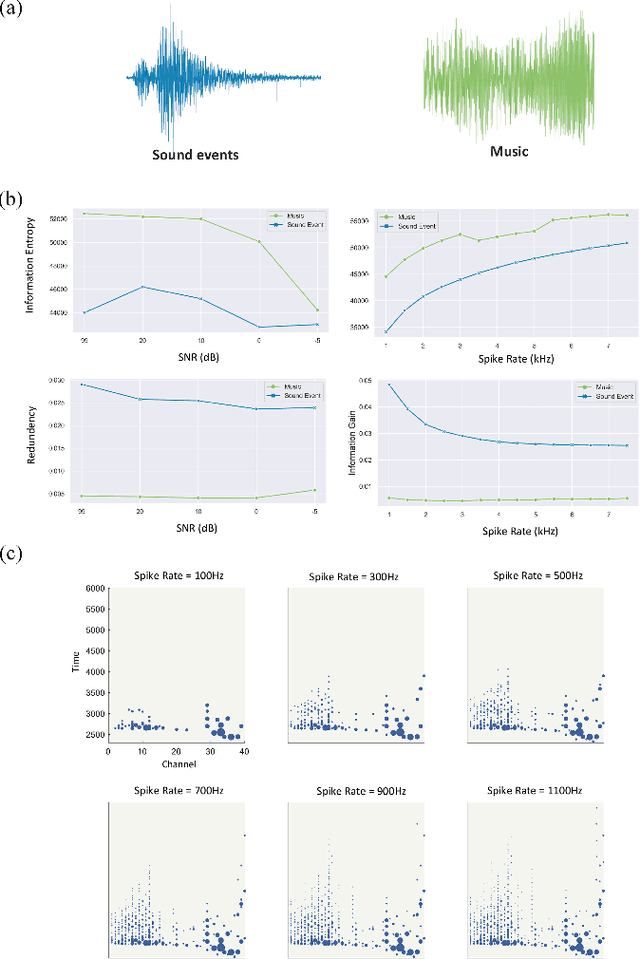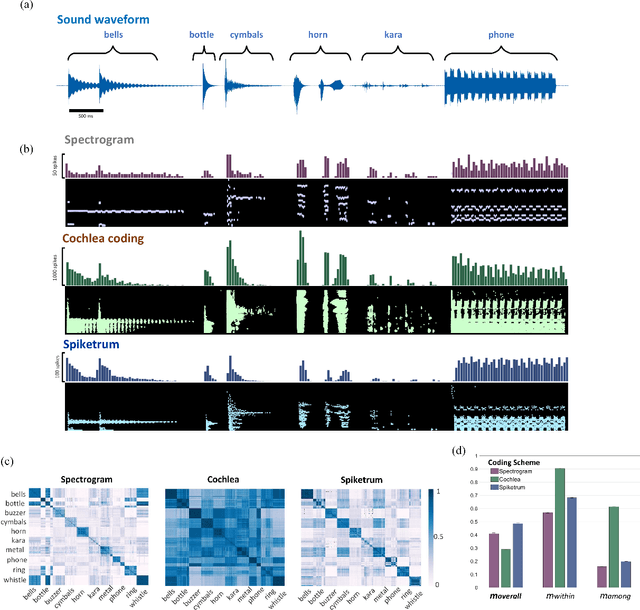Neuromorphic Auditory Perception by Neural Spiketrum
Paper and Code
Sep 11, 2023



Neuromorphic computing holds the promise to achieve the energy efficiency and robust learning performance of biological neural systems. To realize the promised brain-like intelligence, it needs to solve the challenges of the neuromorphic hardware architecture design of biological neural substrate and the hardware amicable algorithms with spike-based encoding and learning. Here we introduce a neural spike coding model termed spiketrum, to characterize and transform the time-varying analog signals, typically auditory signals, into computationally efficient spatiotemporal spike patterns. It minimizes the information loss occurring at the analog-to-spike transformation and possesses informational robustness to neural fluctuations and spike losses. The model provides a sparse and efficient coding scheme with precisely controllable spike rate that facilitates training of spiking neural networks in various auditory perception tasks. We further investigate the algorithm-hardware co-designs through a neuromorphic cochlear prototype which demonstrates that our approach can provide a systematic solution for spike-based artificial intelligence by fully exploiting its advantages with spike-based computation.
 Add to Chrome
Add to Chrome Add to Firefox
Add to Firefox Add to Edge
Add to Edge